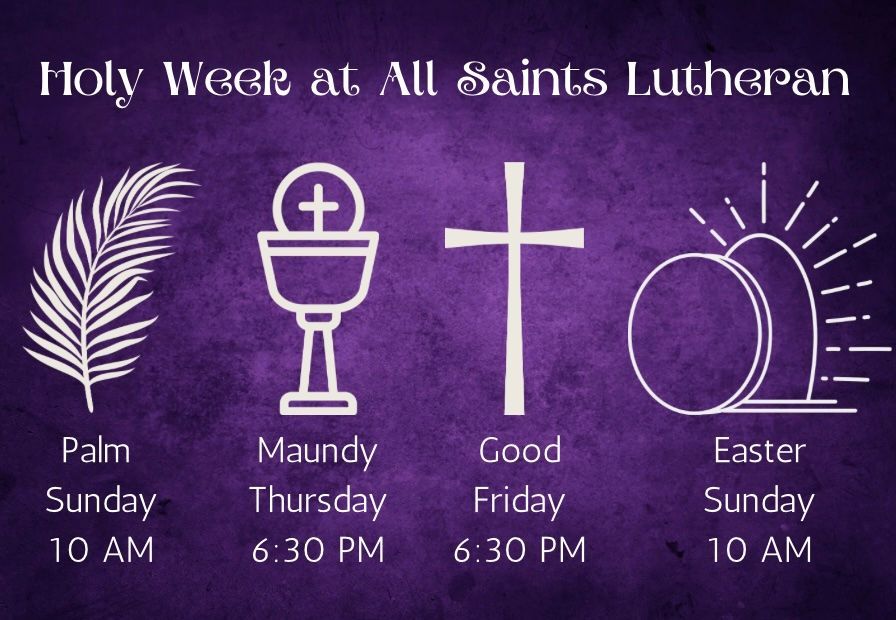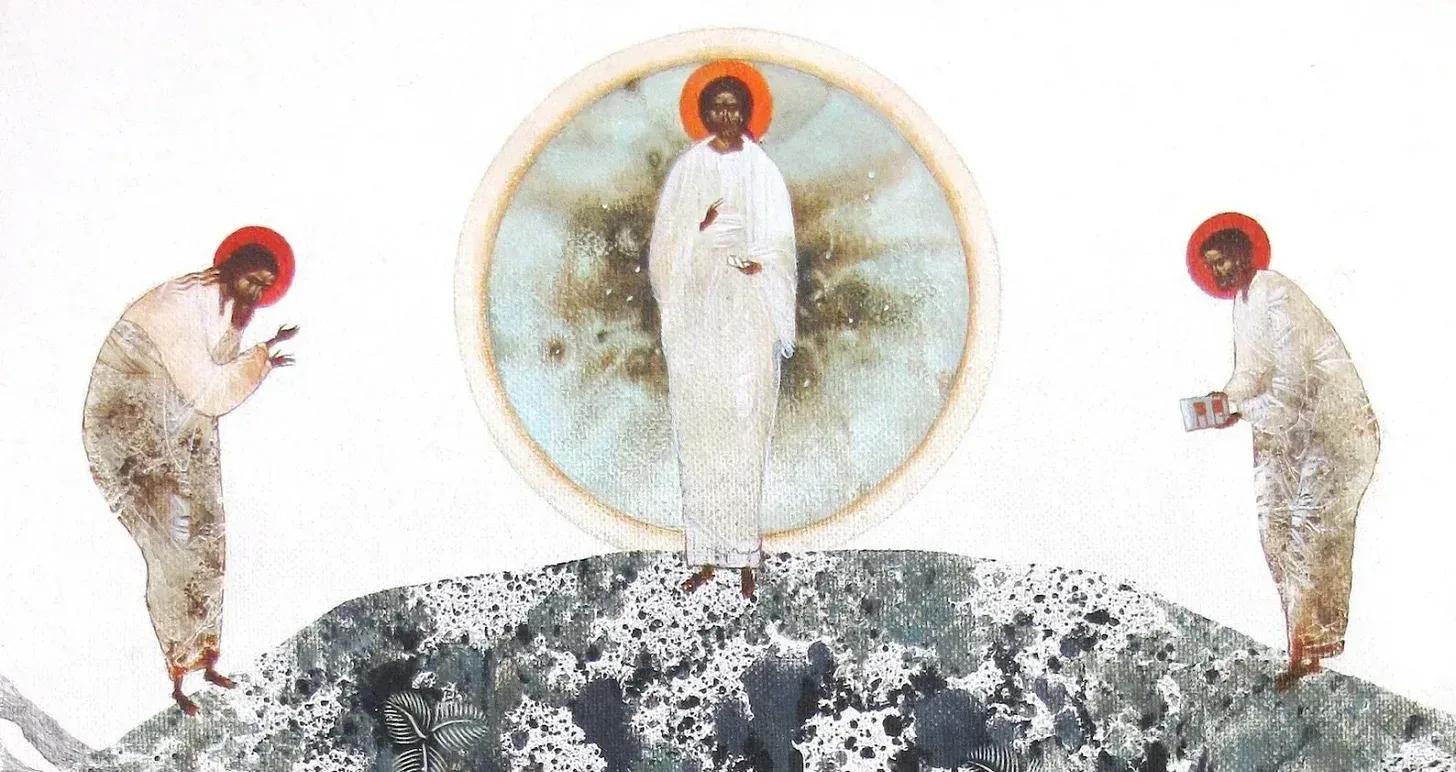Sixth Sunday after Pentecost, Year B, July 7, 2024
As I read through the readings for this week,
an age-old question comes to mind:
If a tree falls in the woods
and no one is around to hear it,
does it make a sound?
Well, yes.
Feel free to check my physics after the sermon,
but yes,
if a tree falls, the waves created by the impact
remain the same, even if they are unperceived.
In fact, we can assume,
that every tree in the petrified forest,
the last of which fell 255 million years ago,
did indeed make a sound
even though it would take another 55 million years
before the first ears would evolve to hear it.
Feel free to check my paleontology after the fact as well.
Further still,
the energy released at the moment of creation,
secularly known as the Big Bang,
is called a big “bang” precisely because
it would have made a sound that no one was around to hear.
In our modern age,
this question has taken on a different form
that sounds a bit like:
If I had a beautiful meal
and didn’t post a pic on social media
did it even happen?
What about my wedding?
Or my vacation?
Or our family Christmas?
Or my charity work?
Did those happen
if I didn’t post about them?
In internet parlance,
“Pics or it didn’t happen.”
And lest you think I have come to bash social media
while I am preaching to an audience on Facebook,
you don’t even have to be on social media
to share this feeling.
We are all children of the enlightenment,
the empirical age.
We are a scientifically minded people.
When someone makes a claim,
we often need or even demand proof.
In other words:
evidence or it didn’t happen.
When this happens we
socially stratify ourselves,
algorithmically silo ourselves,
and partisan-ly entrench ourselves.
This causes us to become disconnected
from the experiences of others,
from lives that aren't like our own.
And when this happens,
it can quickly move
from a simple social understanding and claim
to something deeper, more cynical.
Rather than pics or it didn’t happen,
we demand the right kind of suffering,
or it didn’t happen:
the cries of the poor become dubious,
the stories of immigrants are uncompelling,
the frustration of marginalized communities
are met with incredulity,
dismissed as hysterical fear-mongering.
We quickly become deaf to
the dissent of those
who will have to live with the decisions
we have the power to make—
all because we don't have any proof in our own lives.
Instead, it’s my suffering or it didn’t happen.
This week, and in the weeks to come,
we’ll begin to hear more from the prophets.
We often think of the prophets as fortune-tellers,
court magicians,
like Hebrew Nostradamus.
But the prophets aren't future-seers.
They are truth tellers.
They don't come to show us the future,
they come to show us ourselves
and the consequences of our intransigence.
The prophets come to speak to us on behalf of the poor,
the vulnerable,
the oppressed,
the marginalized,
because to do so is to speak for God.
The prophets come to call our attention
to the suffering of others
and the responsibility of God’s people,
of Jesus’ followers,
to change the systems where we can
and to bind up the wounds
and fill the bellies in the meantime.
The prophets want to give us more than proof,
more than pics.
The prophets call us to solidarity.
The prophets want us to choose
to experience the suffering we are causing,
to let this experience move us to empathy,
and empathy to move us to compassion.
This is why God chooses prophets from obscurity,
from the margins.
God calls the prophets from
or from within
their own suffering
to speak to those in power—
political, social, economic.
God calls these prophets
because the can speak to their experience,
they can preach empathy
and invite compassion.
We might also say that
this call to hear the truth
requires a posture of hospitality,
generosity,
and solidarity.
More simply still,
the prophets call us to love.
This is the call Jesus places
on those he sends out
in our gospel this week –
to be prophetic truth-tellers.
He sends them to practice the love they preach
and to trust that they will be received
with hospitality, generosity, and solidarity.
And the challenge they face
is the same challenge Jesus faces in his hometown
and that is that God’s truth is true,
even if no one accepts or hears it.
God doesn’t promise Ezekiel that everyone will love him.
It seems like even God is unsure
whether or not the people will listen
to his message of Love and Truth.
Paul has been sent as an apostle,
has planted churches all over the Mediterranean,
has witnessed and preformed miracles,
and here he sits with a thorn in his flesh
sending a second letter to this church in Corinth
to tell them to stop fighting and get along.
And Jesus sends the disciples out
without so much as a water bottle
or a stick to lean on,
and gives them explicit instructions
as to what they should do
if one of the towns or villages doesn’t accept
the good news of Love and Truth.
Perhaps then the original question takes on new shape here;
If we go out and tell the truth
and no one accepts it, is it really true?
Yes.
Just as the bursting creation
and the falling tree make a sound
even if no one hears it;
Just as the meal was amazing
the wedding beautiful
the vacation idylic
the family Christmas straight out of Dickens
and your charity work benevolent,
even if no one likes and shares it,
so is the Love and Truth of God real
even if no one believes it.
God is always sending prophets and disciples
to tell us the truth
whether we like it or not.
God, in love, sent Jesus so that we might know
the Truth and Love of God in the flesh,
so that we might open
our ears, our minds, and our hearts
to the Word.
And the hard truth about this is:
there will be times
when we share the Love and Truth of God
and no one believes it.
We may be tempted to hear that rejection as
“Pics or it didn’t happen”?
This may feel like our lives haven’t been proof
of the Love and Truth of God?
But beloved, the good news is that
the Truth and Love of God
can only have their fullest impact in relationship.
God doesn’t send prophets into pulpits
and Jesus didn’t send disciples into synagogues,
each of them were sent to towns and villages,
streets and homes.
Because only a relationship can handle vulnerability,
accountability,
and the transformative power of Truth
without imposition or force.
This means we need long, slow, loving relationships
with folks who disagree with us
without “canceling” us,
scolding us,
or judging us.
We need the Church, the people of God,
communities where we can walk the path together
until the path becomes clear.
We need to live in neighbor-hood,
a state of intentional relationship with our neighbors
as we are becoming the Love and Truth of God,
prophesying by our very lives.
Because in knowing our neighbors
we know God,
and in knowing God and knowing neighbor
we move from experience
to empathy,
and from empathy to compassion—
that is,
we know the way of justice,
the way of Love,
the way of Truth,
the way of prophets and disciples,
the Way of Jesus.
When this happens
we no longer demand proof
we simply share the truth –
that God loves the world and so do we.
Amen.










